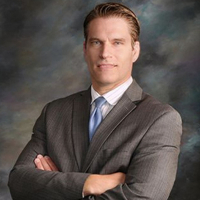Hagar Shores Juvenile Law Lawyer, Michigan
Sponsored Law Firm
-
 x
x

Click For More Info:
-
Law Office of Mark S. Guralnick
55 Madison Avenue 4th Floor Morristown, NJ 07960» view mapCriminal Defense Law Dedicated. Fearless. Successful.
Mark S. Guralnick and his legal team have helped clients throughout the USA and across the world by applying unparalleled dedication and hard work to each case.
800-399-8371
Not enough matches for Hagar Shores Juvenile Law lawyer.
Below are all Hagar Shores Criminal lawyers.
Kevin Allen Dennis
Greetings, I understand you may have a need for legal counsel. My name is Kevin Dennis, I am the Principal Attorney for Compass Law, PLLC. Compass La... (more)
Shaun P. Willis
✓ VERIFIEDShaun Willis, along with his brother Michael, is a co-founder and Partner of Willis Law. Willis Law has offices in Kalamazoo, Grand Rapids, and Paw Pa... (more)
Donald H. Smith
✓ VERIFIEDDon was born and raised in Kalamazoo, Michigan and graduated from Kalamazoo Christian High School in 1989. He attended Hope College in Holland, Michig... (more)
 Mark Guralnick Morristown, NJ
Mark Guralnick Morristown, NJ AboutLaw Office of Mark S. Guralnick
AboutLaw Office of Mark S. Guralnick Practice AreasExpertise
Practice AreasExpertise



